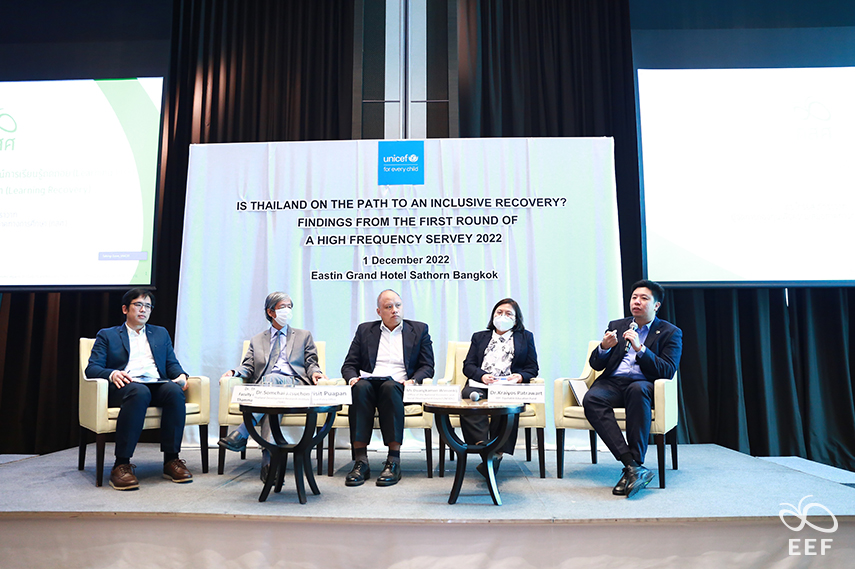
It was pointed out that human resource investment could help Thailand towards an equal recovery in all groups. UNICEF has released the findings of the first recovery from COVID-19 while opening the issue of “Is there anyone still left behind?”
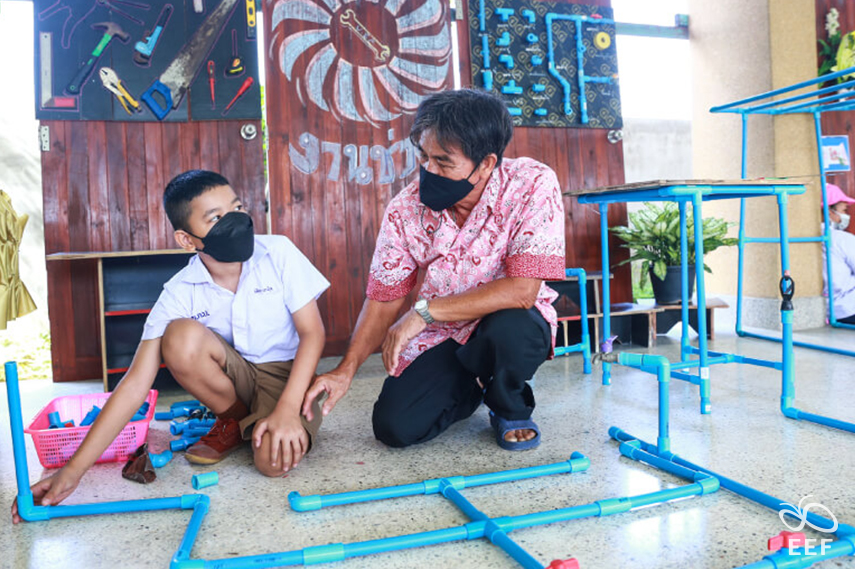
UNICEF revealed the economic and social impact reports and the first recovery after COVID-19 (between August and September 2022) through a survey of 2,583 samples in urban and rural areas across the country who were the working-age population nationwide. The National Economic and Social Development Council, the Fiscal Policy Office, EEF, and Thailand Development Research Institute (TDRI) also joined in the discussion of survey results, with the goals to assess overall impacts on wealth and household welfare, as well as follow the paths of recovery in different dimensions of population, such as employment, income, food security, adaptation, education, and health. Moreover, there was an opening of the forum to exchange ideas in finding ways for conducting another survey. The summary of the survey report is expected to be completed in the year 2023 as the preliminary data for holistic national recovery policy formulation.
Ms. Kyungsun Kim, UNICEF Representative for Thailand, said the socio-economic impact survey report and the first post-COVID-19 recovery after the COVID-19 epidemic crisis demonstrated the wealth of Thai households and the direction of recovery among many population groups, in the dimensions of employment, income, food security, adaptation, education, and health. Even though the survey of working-age populations across the country indicated trends of the general situation in the Thai population, there remained significant differences in inequity among some population groups. Hence, there was a question of whether or not Thailand was moving towards a holistic recovery without leaving anyone behind.
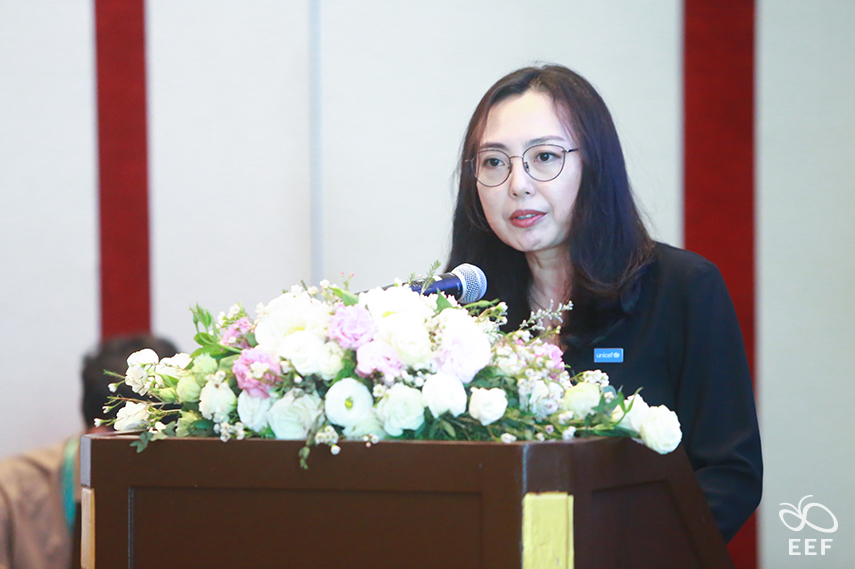
Ms. Kyungsun Kim, UNICEF Representative for Thailand
“Although the Thai government has taken various measures to help deal with situations that arise to a certain extent, the survey still indicates the existing poverty which becomes an important agenda of the country, especially people in the underprivileged groups who face constant obstacles. In the meantime, this also affects young people from these families who suffer from a large number of cognitive declines without appropriate recovery of knowledge amidst the situation of rising food prices, cost of living, energy prices and rising inflation rate.”
Ms.Kyungsun Kim added that the results of this survey left some questions to consider regarding what we could do for all population groups toward their recovery with equity and sustainability regardless of where they live. Particularly, they must be given access to education, public health services, employment, and income. This was only the first survey with the coming of the second survey. UNICEF would summarize a complete report to help shape Thailand’s policy in the next 3-5 years. Hopefully, this work could fill the inequity gap and lead Thailand towards a better future direction with no more leaving ‘anybody’ or ‘certain population groups’ behind.
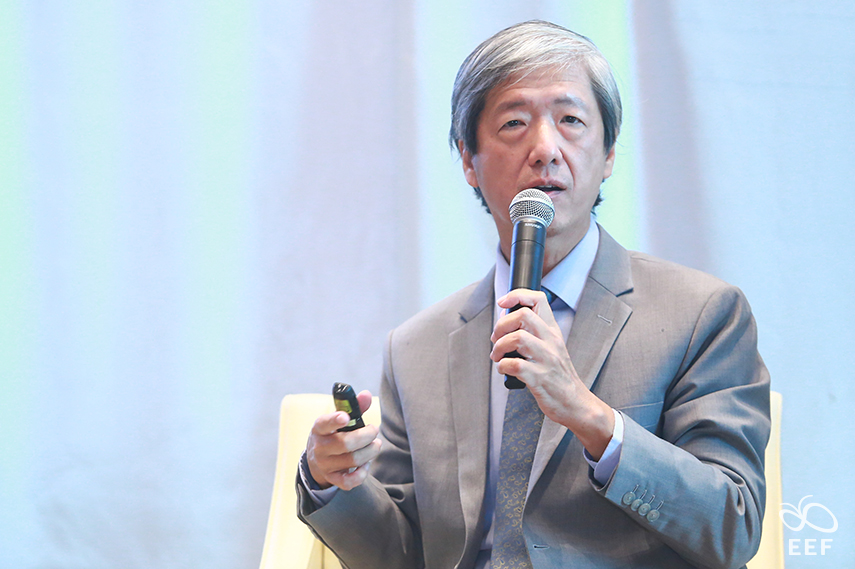
Dr. Somchai Jitsuchon, Director of Research for Inclusive Development,
Thailand Development Research Institute (TDRI)
Dr. Somchai Jitsuchon, Director of Research for Inclusive Development, Thailand Development Research Institute (TDRI), said that one conclusion from the report projected how the country’s situation was improving. The interesting point was that there were still groups of people who would need to access the recovery. The survey led us to find information for more studies on these groups while designing ways for bringing them back to meet the needs of the country’s holistic restoration. In the meantime, there should be a policy to design appropriate social measures for the post-COVID-19 situation by understanding various survey reports.
The obvious issue was the development of children and youth. From the survey results, there was an interesting point on the lack of food security in children. Thus, there must be a policy for thorough assistance. In terms of education, the private sector should be involved such as in the reduction of internet costs for education, along with the government’s existing policy. UNICEF or any agencies may provide consultation at the operating level, as well as assist in the survey with planning and problem-solving to work at the local level. This was because big national problems must require prompt cooperation toward the solutions for knowledge loss and tangible restoration of the country.
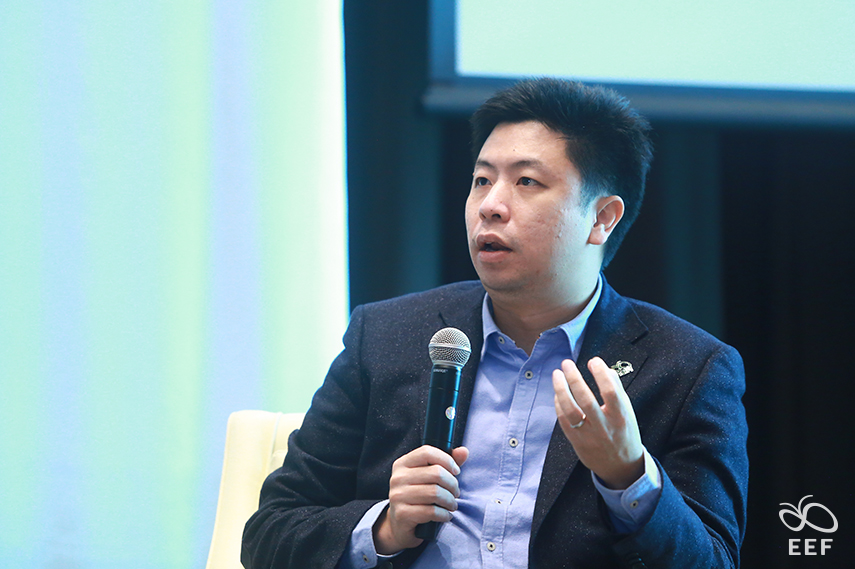
Dr. Kraiyos Patrawat, Managing Director for Equitable Education Fund (Thailand)
Dr. Kraiyos Patrawat, Managing Director for Equitable Education Fund (Thailand), also mentioned that the UNICEF’s report was very crucial during the period of Thailand’s moving forward to recovery from the COVID-19 crisis. The results of this survey would be very helpful for the country’s policymaking in the near future for all population groups.
In this regard, EEF joined in this report presentation on the impact of COVID-19 on learning loss and learning recovery by surveying the average learning readiness of youth nationwide. Poverty was found to be a major barrier to learning, with children from 10-20% of the country’s poorest households receiving a higher impact on learning loss than others. Besides academic learning, the physical loss was also found among kindergarten and early elementary school-age children, with muscle weakness problems, improper development of large and small muscles, lack of confidence in movement or lack of communication skills, etc.
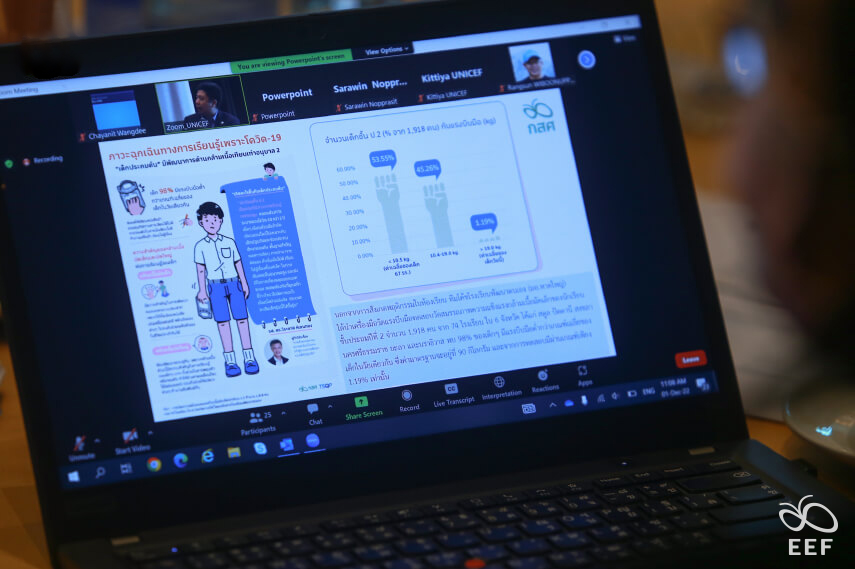
“A survey database on the root causes of such problems has enabled EEF to work with partner schools in supporting teachers and parents to observe their children and speed up finding ways to improve their loss of physical development loss, which would lead to the rehabilitation of children’s all-round development so that they could be back with learning readiness and confidence again.”
In the meantime, Dr. Kraiyos suggested prompt investment by the government in the underprivileged groups, in line with the evaluation through survey data similar to the report of UNICEF towards a process of quality policy formulation to encourage and support all population groups of people at the right point. This would be a crucial step in recovering the country from COVID-19 with equity in the long run. The survey and follow-up data from all population groups across the country could be the starting point for a change towards comprehensive care measures for all population groups, targeting the support and assistance of those having specific problems.
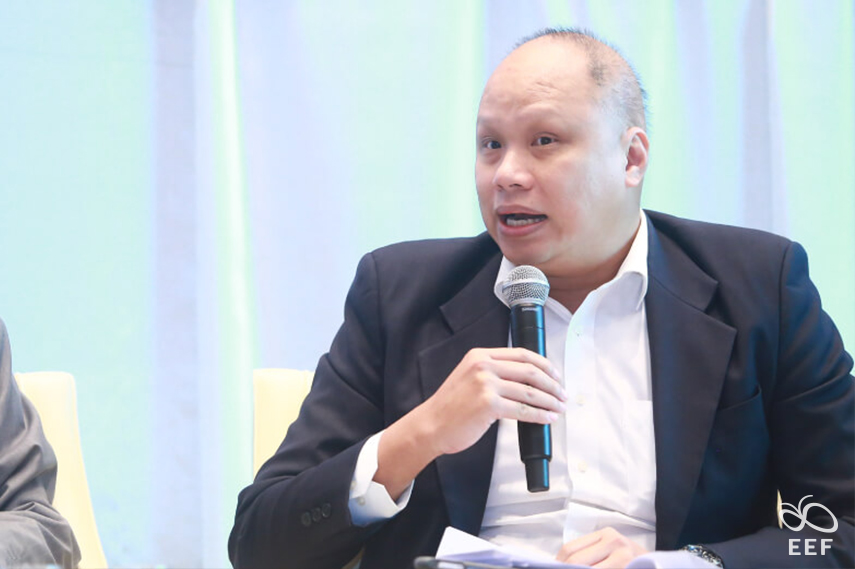
Dr. Pisit Puapan, Director of the Macroeconomic Policy Division,
Fiscal Policy Office, Ministry of Finance
Dr. Pisit Puapan, Director of the Macroeconomic Policy Division, Fiscal Policy Office, Ministry of Finance, said that three aspects of strategy by the Ministry of Finance are linked to UNICEF and the country’s future economic development. One strategy is the fiscal policy to solve inequity problems. The UNICEF’s report clearly showed that low-income households remain to be continuously affected by COVID-19 more than any other groups. Data development which allows the government’s perception of populations or entrepreneurs would lead to more contributions to social welfare.
The second strategy is to develop competitiveness in the medium to long term. The government has to raise the potential of children, youth, and workers. From the survey results, digital technology can be a tool for development in which the government should have more investment to increase the potential of various targeted industries with impacts on the country’s economic system. Moreover, workers should be entered into industries with future growth such as tourism or health services.
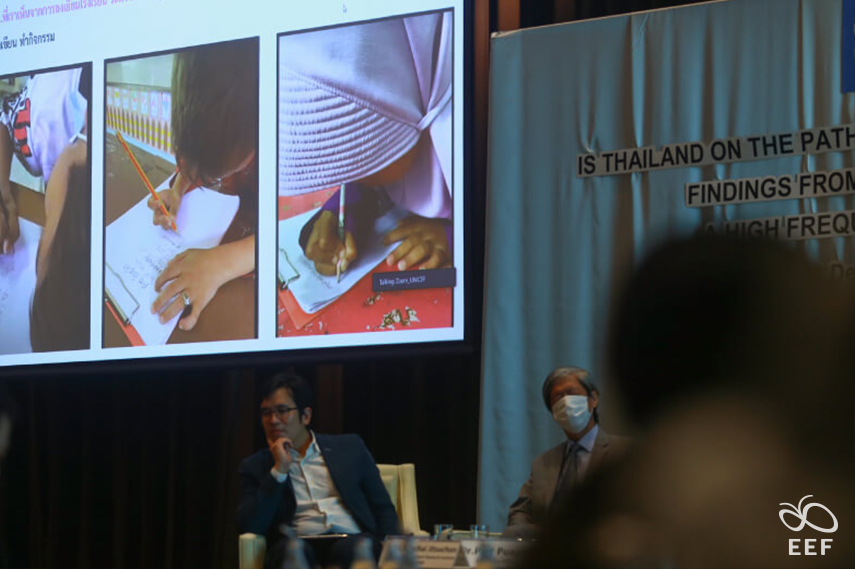
“The third strategy is to maintain the sustainability of fiscal policy. We have a limited budget with taxes per GDP of Thailand at 14%, while the European tax base is at 30-35%. Therefore, if we do not expand the tax base for the social welfare policy, there should be a welfare system with more specific target groups, namely the low-income groups for their growth and development. Ultimately, such specific policy for specific target groups may become an important alternative to restore the country in the short term goals.”

